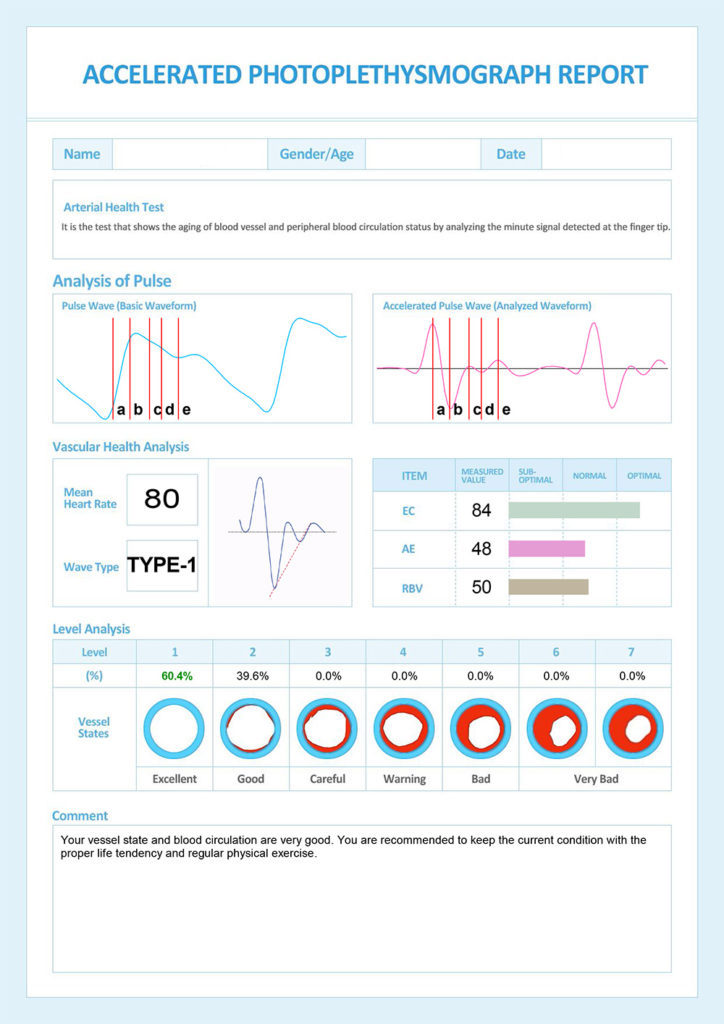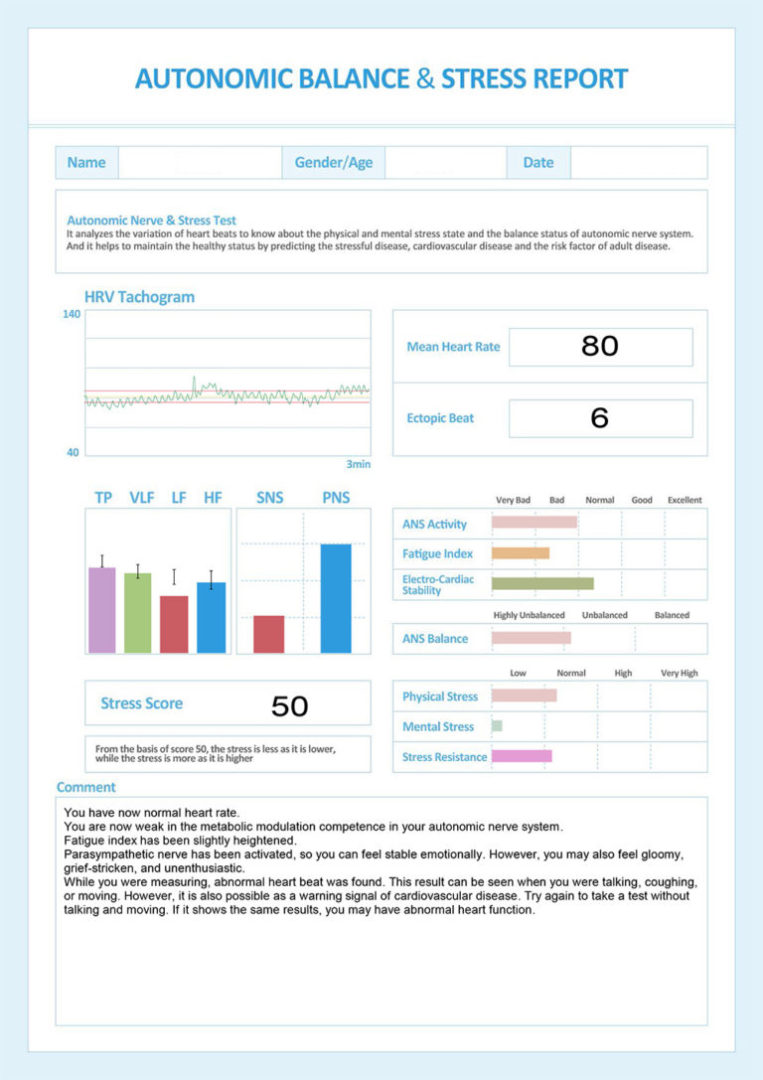Comprehensive Cardiovascular Screening with Max Pulse Technology

Fast screening for arterial health, circulatory issues, heart health and stress levels.
Every year, about 647,000 people in the United States succumb to heart disease, making it the leading cause of death, according to the American Heart Association. Enhance your cardiovascular well-being and quality of life through proactive measures, early detection, and effective risk factor management.
Max Pulse Cardiovascular Screening
Experience the cutting-edge Max Pulse, an FDA Class II cardiovascular medical screening device that assesses your cardiovascular risk. This non-intrusive device utilizes pulsewave analysis technology, monitoring the journey of your blood from the heart to fingertips. Within 3 minutes, it identifies arterial hardening and assesses stress levels.
By analyzing fingertip blood using a photoelectric clip, the Max Pulse creates a dynamic graph of your heartbeat, capturing both systolic and diastolic phases. Utilizing a sophisticated algorithm, the Max Pulse Evaluation interprets variations in arterial pressure, providing insights into arterial hardening and potential atherosclerosis (plaque buildup).
Beyond assessing arterial health and atherosclerosis risk, this state-of-the-art technology also evaluates blood circulation, identifying circulatory issues. The Max Pulse analyzes vital factors within your cardiovascular system, including:

Heart Rate Variability (HRV)

Differential Pulse Wave Index (DPI)

Arterial Elasticity

Stress Levels – Mental and Physical Stress

Stress Resistance

Mean Heart Rate
Analysis of these autonomic nervous system factors indicates the condition of your overall cardiovascular health, stress levels, resistance to stress and the process of blood circulation.
The Max Pulse Test generates two informative reports: one on arterial stiffness and another detailing overall stress levels. Prioritize your cardiovascular health with Max Pulse screening today.
Accelerated Photoplethysmograph Report: Cardiovascular Assessment
Arterial Stiffness Report This pulse wave analysis test shows the aging of your blood vessels and peripheral blood circulation status by analyzing the minute signal detected at the fingertip.
Normal Vascular Compliance VS Abnormal Vascular Compliance – Post-COVID Patient


Arterial Health Score A type 1-7 scoring system provides accurate assessment of arterial hardening. The final report can also indicate early congestive heart failure or heart weakening. This test provides early detection of arterial hardening long before the patient becomes symptomatic. This analysis is crucial for individuals with diabetes and for patients with high blood pressure or elevated cholesterol. Analysis of Pulse Wave This report shows the arterial pulse wave as the heart moves through systolic and diastolic. Explore Vascular Health Analysis: The report displays Mean Heart Rate and categorizes arterial ‘wave type’ into 7 distinct categories (ranging from 1 for a healthy heart to 7 for a heart and vascular system in the poorest condition), based on the accelerated pulse wave.
The report analysis:

Eccentric Constriction
(EC):
Reflects the force of vessel constriction originating from the left ventricle.

Arterial Elasticity
(AE):
Evaluates blood circulation, vascular elasticity, and vessel resistance, identifying early signs of cardiovascular conditions such as atherosclerosis.

Remaining Blood Volume (RBV):
Depicts the residual blood within vessels post-systolic heart contraction. Healthy blood vessels typically exhibit minimal remaining blood volume.
Healthy arteries are flexible and elastic, but over time, the walls of your arteries can harden. Atherosclerosis develops as arteries, responsible for transporting oxygen and nutrients from the heart to the body, thicken and stiffen, potentially impeding blood flow to organs and tissues. This test will provide early detection of arterial hardening or atherosclerosis.
Max Pulse: Assessing Autonomic Balance and Stress Levels

It analyzes the variation of heart beats to know the physical and mental stress state and the balance status of autonomic nervous system. Heart Rate Variability (HRV) Measures the degree of fluctuation in the length of intervals between heart beats. For healthy people, HRV shows a fluctuation in heart rate while unhealthy people have simple and consistent heart rate. HRV measures the adaptability of the cardiovascular system and autonomic nervous system, which is composed of the sympathetic nervous system (SNS) and parasympathetic nervous system (PNS). Your sympathetic nervous system plays the role of the accelerator, also known as your body’s flight or fight. Meanwhile, your parasympathetic nervous system functions as the brake, also known as rest and repair. An individual in good health possesses a well-regulated autonomic nervous system. The Max Pulse is a great tool for measuring and monitoring cardiovascular health. Max Pulse professionals at Dr. Thaik’s office are experienced at providing therapy and protocols based on individual results.
